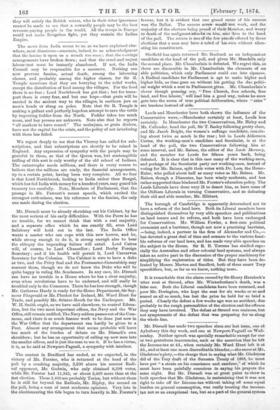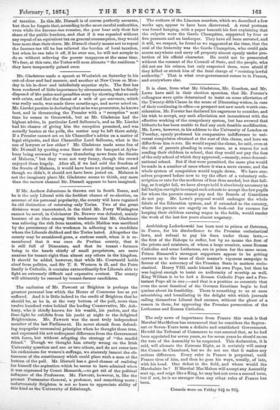Mr. Disraeli has made two speeches since our last issue,
one at Aylesbury this day week, and one at Newport-Pagnell on Wed- nesday. Neither speech was specially remarkable except for one or two gratuitous inaccuracies, such as the assertion that he left the Income-tax at 4d., when certainly Mr. Ward Hunt left it at 6d., and at least one more discreditable blunder,—the sneer at Mr. Gla.dstone's piety,—the charge that in saying what Mr. Gladstone did of the Tory draft of the Sumatra Treaty of 1868, he must have put "a strain on his conscience and candour," of which he must have been painfully conscious in saying his prayers the same night. But Mr. Disraeli was at great pains to show in both speeches that Mr. Gladstone, in maintaining that it was not right to take off the Income-tax without taking off some equal burden on general consumption, was really treating the income- tax not as an exceptional tax, but as a part of the general system
of taxation. In this Mr. Disraeli is of course perfectly accurate, but then he forgets that, according to the most careful authorities, even while the Income-tax remains, the poor bear only their fair share of the public burdens, and that if it was repealed without any repeal of an equivalent tax on general consumption, they would bear more than their share. Mr. Disraeli clearly means not to repeal the Income-tax till he has relieved the burden of local taxation, but when he can take it off, if he ever can, he will not scruple to do so without relieving the poorer taxpayers at the same time. We fear, at this rate, the Tories will soon alienate "the residuum" they have temporarily gained over.



































 Previous page
Previous page